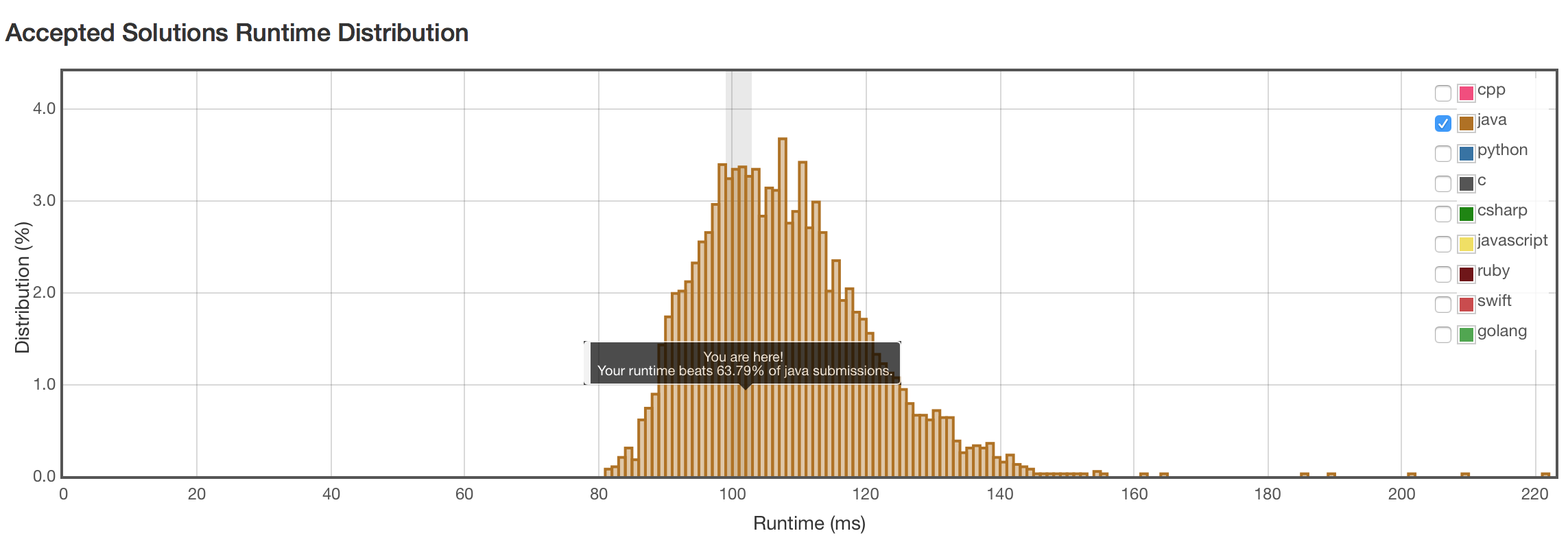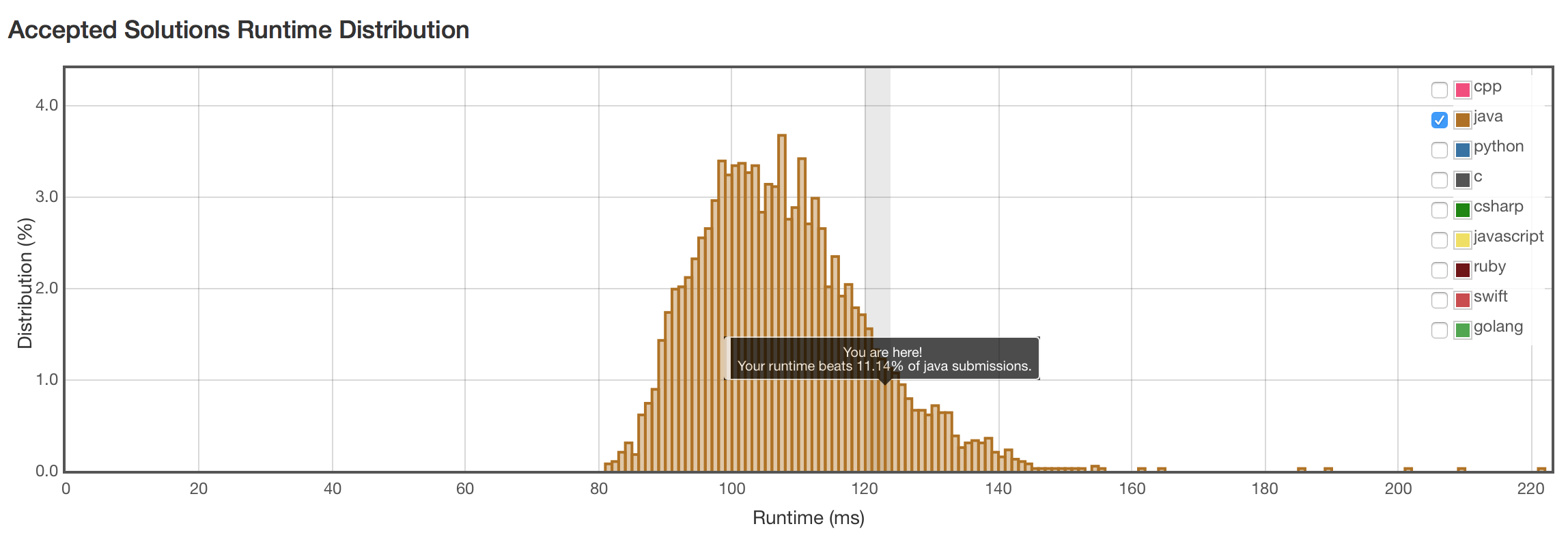题目
Given a roman numeral, convert it to an integer.
Input is guaranteed to be within the range from 1 to 3999.
查表法
代码
public class Solution {
private static final Map<String,Integer> DIC = new HashMap<>();
static {
DIC.put("",0);
DIC.put("I",1);
DIC.put("II",2);
DIC.put("III",3);
DIC.put("IV",4);
DIC.put("V",5);
DIC.put("VI",6);
DIC.put("VII",7);
DIC.put("VIII",8);
DIC.put("IX",9);
DIC.put("X",10);
DIC.put("XX",20);
DIC.put("XXX",30);
DIC.put("XL",40);
DIC.put("L",50);
DIC.put("LX",60);
DIC.put("LXX",70);
DIC.put("LXXX",80);
DIC.put("XC",90);
DIC.put("C",100);
DIC.put("CC",200);
DIC.put("CCC",300);
DIC.put("CD",400);
DIC.put("D",500);
DIC.put("DC",600);
DIC.put("DCC",700);
DIC.put("DCCC",800);
DIC.put("CM",900);
DIC.put("M",1000);
DIC.put("MM",2000);
DIC.put("MMM",3000);
}
public int romanToInt(String s) {
int length = s.length();
int high = 0, result = 0;
while (high < length) {
int low = length;
while (low > high) {
Integer num = DIC.get(s.substring(high,low--));
if (num != null) {
result += num;
high = low+1;
break;
}
}
}
return result;
}
}
结果
查表法速度还不错。

漂亮的搜索法
因为罗马字符是原始的把所有数字都加起来来计数的,327 = 300 + 20 + 7,
300 = CCC
20 = XX
7 = VII
327 = CCCXXVII
所以,每出现一个I就代表往结果上累计了1, 一个X就说明往结果上加10。所以,对于前面的例子327,我们只要把CCCXXVII每个符号对应的数字加起来就得到了结果:
CCC = 100 + 100 + 100 = 300
XX = 10 + 10 = 20
VII = 5 + 1 + 1 = 7
327 = 300 + 20 + 7
唯一需要注意的是4 = IV和9 = IX这样的特例。但没出现一个IV我们原先计入了1+5=6,但实际表示4,所以只要减去6-4=2即可。相应的90,XC只需要从110中减去20。
代码
public class Solution {
public int romanToInt(String s) {
char c[]=s.toCharArray();
int sum=0;
for(int count = 0; count <= s.length()-1; count++){
if(c[count]=='M') sum+=1000;
if(c[count]=='D') sum+=500;
if(c[count]=='C') sum+=100;
if(c[count]=='L') sum+=50;
if(c[count]=='X') sum+=10;
if(c[count]=='V') sum+=5;
if(c[count]=='I') sum+=1;
}
if(s.indexOf("IV")!=-1){sum-=2;}
if(s.indexOf("IX")!=-1){sum-=2;}
if(s.indexOf("XL")!=-1){sum-=20;}
if(s.indexOf("XC")!=-1){sum-=20;}
if(s.indexOf("CD")!=-1){sum-=200;}
if(s.indexOf("CM")!=-1){sum-=200;}
return sum;
}
}
结果
算法很讨巧,但没有查表法来得直接和有效。
